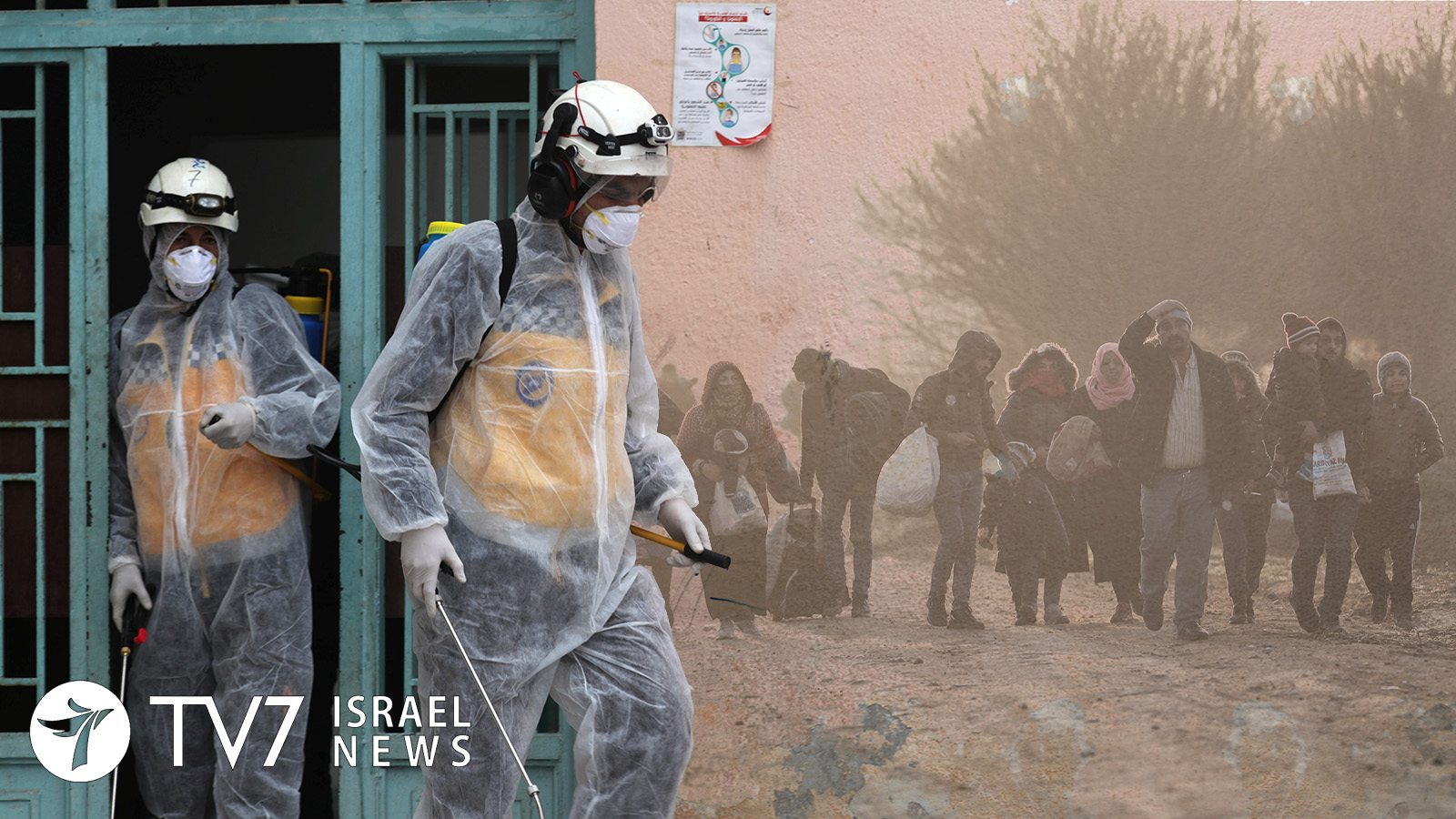Following weeks of rejecting opposition allegations that COVID-19 has already reached Syria, officials have confirmed what they say is the first sign of the pandemic.
Health Minister Nizar al-Yaziji told state media that “necessary measures” are being taken concerning an infected 20-year-old woman, who he said will remain quarantined for 14 days while undergoing medical supervision.
There have been unconfirmed reports of a coronavirus outbreak in the Arab Republic for several weeks, which authorities have denied. They have also dismissed claims of a cover-up.
United Nations officials and humanitarian workers fear a major outbreak in Syria could be particularly catastrophic. The country’s health system, housing and infrastructure have been ravaged by nine years of civil war.
In recent days Damascus announced a ban on public transport and stepped up lockdown procedures, including the closure of schools, parks, restaurants and various public institutions. State media reported that in an unprecedented move, bakeries across the country have been closed to the public to prevent mingling by customers during hours waiting in long lines, and that bread deliveries are only being carried out directly by distributors to homes.
In another unusual move, Syrian President Bashar al Assad issued a prisoner amnesty yesterday, which state media said was meant to ‘relieve congestion that risked the spread of the virus.’
Medics say Syria is particularly vulnerable due to the influx of Iranians.
Thousands of Tehran-backed militias continue to flood the country to fight alongside government forces, which are headquartered in the Damascus Shi’ite suburb of Sayeda Zainab and maintain a strong presence in all the most-populated cities.
Iran, one of the countries most affected by the pandemic outside China, is Syria’s main regional ally and operates military and civilian flights that bring the militia fighters into the country. Iran is suffering the worst outbreak of the coronavirus in the entire Middle East, with a mortality rate of one person every 10 minutes.
Shi’ite-Iranian Muslims on religious pilgrimages are also continuing to visit Syria. Western diplomats tracking Syria say that Iran’s Mahan Air still has regular flights from Tehran to Damascus, even though other Syrian flights have been suspended. Local residents and Western intelligence sources are reporting that Iranian-backed militias also still enter Syria using the alBukamal border crossing with Iraq, where the virus is spreading.
The General Command of the Syrian army announced on Saturday it had raised the level of preparedness at military hospitals. The size of all gatherings has also been minimized, and military conscription has been suspended. “We have taken a number of steps … to protect our sons in their residences in military units and formations and order the use of gloves and masks,” an army statement said.
Meanwhile, a civilian effort to combat the spread of the novel coronavirus by a group called Shabab Syria al-Um is underway in the Syrian town of Qamilshi, located near the Turkish border. The campaign is being conducted in cooperation with a local security group called Suturo to sanitize the exteriors of homes and public spaces.
According to local volunteer George Milkon, “There are many steps taken and other civilian initiatives that encourage people to remain in their homes.” Places being disinfected include bakeries, stores that sell vegetables and meat, restaurants and the homes of the elderly in the al Wusta neighborhood. Milkon described the mission as “a big initiative with limited capabilities,” but said “we hope that everyone will participate.”
